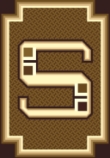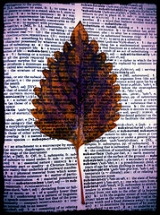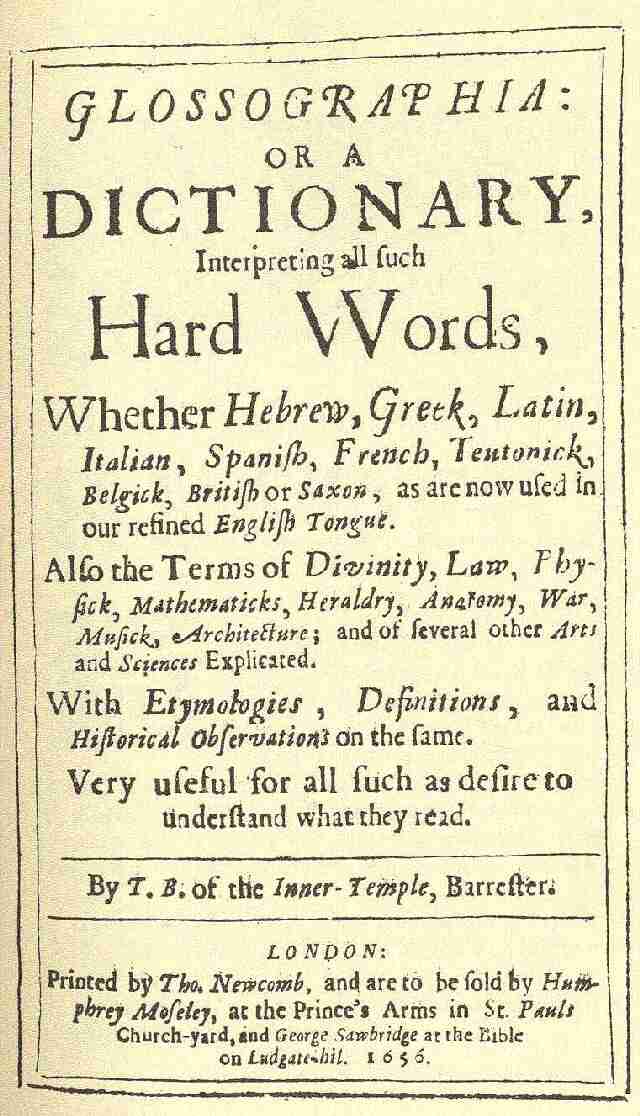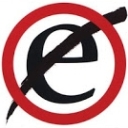
.
From the Dungeon to the Dictionary
Linguistic DisquisitionsHover over italicized words for definitions |
I recently received an e-mail from a correspondent who noted that my list of forms of government lacked the word magocracy. I was slightly bewildered that it was not there, for two reasons. I'd thoroughly searched the online Oxford English Dictionary and other sources for all "-cracy" and "-archy" words, so in theory, there shouldn't be any omissions. What's more, it was a word that had been familiar to me for many years. You can imagine, then, my chagrin when I determined that there is no such word - at least, not in any dictionary. That is to say, magocracy is properly *magocracy, using the linguist's convention of an asterisk to represent irregular, improper or non-existent words.
This revelation left me, if not shaken to my lexicographic foundations, then at least perplexed that I had possessed in my vocabulary for many, many years a word that simply did not exist. This admission is rather embarrassing for someone who takes great pride in his knowledge of obscure English vocabulary. How could this happen?
The answer is that for over twenty years, I have been a participant in role-playing games (RPGs), most notably Dungeons and Dragons (usually abbreviated to D&D), an extremely popular game with millions of players worldwide (mostly in their teens and twenties), and also one with its own curious jargon. If you are a non-gamer and have ever had the (mis)fortune to sit in on a game or game-related discussion, you may have been baffled by all the talk of PCs and NPCs, THAC0, non-weapon proficiencies, character alignment and hit points - and, very occasionally, a reference to *magocracy.
Any sufficiently popular and complex hobby, game or sport will quickly develop its own cant, a mode of discourse that by its nature includes insiders and excludes others. Baseball terms have, over decades of media coverage, become so familiar that terms like strikeout and spitball have entered the English language more generally. But the birth of *magocracy reflects a rather different process relating to the written nature of the game of D&D and its connections to fantasy literature. In the remainder of this essay, I will discuss the role of Dungeons and Dragons and its creator and primary author, Gary Gygax, on modern English usage. While Mr. Gygax has not been recognized by the Oxford English Dictionary as a great wordsmith (the only non-trademarked word he is credited with coining is magic-user), his contribution, and more generally the contribution of Dungeons and Dragons, has been much more significant than generally recognized.
The Words of the Game
From its inception, Dungeons and Dragons has provided a cornucopia of new vocabulary to its mostly younger audience. As a child, I was filled with wonderment at my first encounter with electrum coins, potions of diminution, and lycanthropic foes. What joy to find treasure hoards full of sardonyxes, olivines, and my semi-eponymous favourite, chrysoprases. How delightful to slay one's imaginary foes with a halberd, guisarme or bec de corbin (this last one was particularly amusing because one of the guys in my gaming group was named Corbin, although I don't ever recall his characters using one). And without the game, thousands of youths would still be holding on to the misconception that a brazier is a support undergarment.
I remember vividly an encounter with my seventh-grade French teacher, who was astonished that I knew the word 'toxic'; I was (and am still) astonished that she was astonished, as I considered it quite ordinary. I told her at the time that it was a 'D&D word', although in actuality I think that toxic is one of those words that all parents should teach their children as soon as possible! It's true that if you want your child simply to learn words outside of any context, Scrabble is a much better vocabulary-building game, but in my experience, Scrabble is mostly about using existing vocabulary, and that in a decontextualized way. Give me D&D any day, and I'll give you a child who learns to love words.
One side effect of a game that is played by so many children, and uses such a rich vocabulary of obscure terms, is that non-standard words acquire considerable currency. So, for instance, the older and etymologically correct but less common petrification has achieved great popularity from its use in D&D and is now over twice as common on the Internet (41000 to 17400 Google pages) over the formerly standard petrifaction. The nonsense-word vorpal used by Lewis Carroll in his poem "Jabberwocky", which from context in the poem probably means 'deadly, keen', through transference to the general term 'vorpal weapon' in D&D, has come to acquire the sense 'capable of beheading' (cf. this article). This abundance of odd words can be a double-edged sword, or perhaps a guisarme of linguistic confusion amidst an arsenal of linguistic joy.
Non-existent Governments: *Magocracy
The first occurrence of *magocracy in print, anywhere, as far as I have been able to determine, is on page 89 of the Advanced Dungeons and Dragons Dungeon Master's Guide (1979), by Gary Gygax, in a list of forms of government. Many of the terms on my own list of governmental types are found there, naturally, such as gynarchy, oligarchy, and theocracy. But also included on the list are five neologisms:
*militocracy: government headed by the military leaders and the armed forces in general
*pedocracy: government by the learned, savants and scholars
*syndicracy: government by a body of syndics, each representing some business interest
*magocracy: government by professional magic-users only
It's certainly possible to derive etymologies for these words. No doubt *geriatocracy is an irregular formation derived from geriatric, which is taken from Greek geras old age and iatros physician; the accepted term is gerontocracy. *Militocracy is from Latin militaris military (cf. the accepted stratocracy), *pedocracy from pedant or perhaps pedagogue (there is no accepted synonym, although there exists the nonce-word pedantocracy), and *syndicracy from English syndic (from Greek syndikos with justice); again, there is no direct parallel, although syndicalism is close. And, of course, *magocracy derives from magic or magus. Of these five, only *magocracy has achieved any popularity; there are about 2000 hits on Google as of January 2005, almost all on D&D and gaming-related pages. This is no doubt because wizardry and magic play a central role in the game, much more than the other four categories of leader.
The Spell that Wasn't: *Dweomer
One of the most curious words in the entire corpus of Dungeons and Dragons books is *dweomer, which is defined in the 1st edition Advanced D&D Dungeon Master's Guide (1979, p. 228) as follows: "From dweomercraeft, the art (craeft) of magic (dweomer)" . Fair enough, but then whence dweomercraeft? Turns out it is a real, if obscure, word used in Middle English (and presumably in Old English). (As a side note, I find words that start with dw- to be very compelling. The only common ones in English are dwarf, dwell, dwindle, and their derived forms, but how do you like dwale?)
Dweomercraeft first shows up in Layamon's Brut, an epic history of England in verse, a sort of ancestral text to the Arthurian legends, written about 1215 (over a century before Chaucer), which uses almost no Anglo-Norman (i.e. derived from Norman French words). Layamon writes, "And Peluz hit wiste anan thurh his dweomer-craeften". This doesn't help us much, but we also know of an Old English word gedwimer meaning 'sorcery' and gedwimere meaning 'sorcerer, juggler'. There is also a Middle English word dweomerlayk 'magic, practice of occult art, jugglery', also used by Layamon, and used by some later Middle English authors as 'demerlayk'. And so the OED, based on this evidence, defines dweomercraeft as 'jugglery, magic art'.
Nevertheless, *dweomer is an entirely novel term, coined by decomposing and folk etymologizing the compound dweomercraeft in a way that no earlier author had done. Gygax has re-etymologized 'dweomer', as in D&D it always describes a spell or an act of magic rather than sorcery in general. It's a very innovative neologism, one with nearly 8,000 Google results, and has been used elsewhere in print by fantasy authors such as Katherine Kerr, a gamer whose novels have been strongly influenced by D&D. Despite its great antiquity, 'dweomer' is truly new to English.
A possible origin: 'dweomerlayk' shows up as 'Dwimmerlaik' in Tolkien's Lord of the Rings, as an epithet applied to the Witch-King of Angmar by Eowyn at the Battle of the Pelennor Fields - you know, that whole 'I am no man' spiel. Tolkien also refers to Dwimorberg, the Haunted Mountain, and Dwimordene, the name given by the people of Rohan to Lorien. All of these 'dwimmers' and 'dwimors' mean 'haunted' in the Rohirric language, which is of course just Old English (cf. Foster's The Complete Guide to Middle-Earth, p. 101). There's no specific evidence that this is the source of Gygax's *dweomer (Tolkien certainly never uses it in that spelling, or as a noun, or as a non-compounded word of any sort), but it certainly could be, given the influence of Tolkien's oeuvre on the concepts and settings of Dungeons and Dragons.
An Imaginary Book: *Libram
Just when you thought your system has had as many surprises as it could handle, I've got one more for you. If you were very, very lucky, your D&D character might, after years of hard labour, be lucky enough to find a magical Libram of Gainful Conjuration, a magical book of great power. Trouble is, there's no such thing, or at least, there's no such word. *Libram is, as far as I can tell, a complete fabrication. And yet today, it is widely used in role-playing games, and has over 8,000 Google hits, and I have yet to find one of those hits on an English page that suggests a non-gaming origin. I simply have no idea where it comes from. I don't know how it ought to be pronounced (Lee-brum and Lie-brum seem equally plausible). It isn't even good Latin; assuming that it must be from liber 'book', 'libram' is not a valid declination. It is the accusative singular form of the feminine noun libra 'balance, scales', but I presume that's not what we're after! And the less said about the "Libram Libris Bestiis Chaotis" from the Warhammer Fantasy Encyclopedia rulebook, the better!.
I'm completely baffled as to the origin of this term. And yet, I wouldn't be surprised if it turns out that Gygax was not the originator of this term, but was merely reproducing a word he found in his wide reading of fantasy and science fiction of the 1930s to 1960s. For instance, while he did not coin the terms, he is the popularizer of teleport and psionic, both of which feature prominently in Theodore Sturgeon's compelling 1953 SF novel More than Human, and eldritch, an old Scottish dialectal term used by pioneering fantasy authors such as Lord Dunsany and H.P. Lovecraft. I wouldn't exclude the possibility that *libram has a similar origin.
Update (May 31, 2007): An astute reader has emailed me to note that the word 'libram' occurs several times in the fantasy novel, The Eyes of the Overworld (1966) by Jack Vance. This precedes any D&D book by several years, and is a plausible source for the word. Using this tip, I was then able to find this Usenet post from December 2006 which traces it back to 1950 and Vance's collection of stories, The Dying Earth. This provides further support for the position that the word originated in genre fiction (probably that of Vance himself) and was later borrowed by Gygax (consciously or unconsciously) for D&D.
Conclusion
Despite my mild concern at the discovery that these 'Gygaxisms' were not, in fact, part of standard English, my feelings about their existence are mainly positive. Their entry into the corpus of our language's speech and writing may have been roundabout, and their status as valid English not yet affirmed by lexicographers, but they are well on their way. While I don't expect to see a magocrat casting a dweomer from his libram on the street in the immediate future, I wish these words well in their journey, and I thank their creator for giving them to me and to others.
I hope you have found this site to be useful. If you have any corrections, additions, or comments, please contact me. Please note that I am not able to respond to all requests. Please consult a major dictionary before e-mailing your query. All material on this page © 1996-2021 Stephen Chrisomalis. Links to this page may be made without permission.








